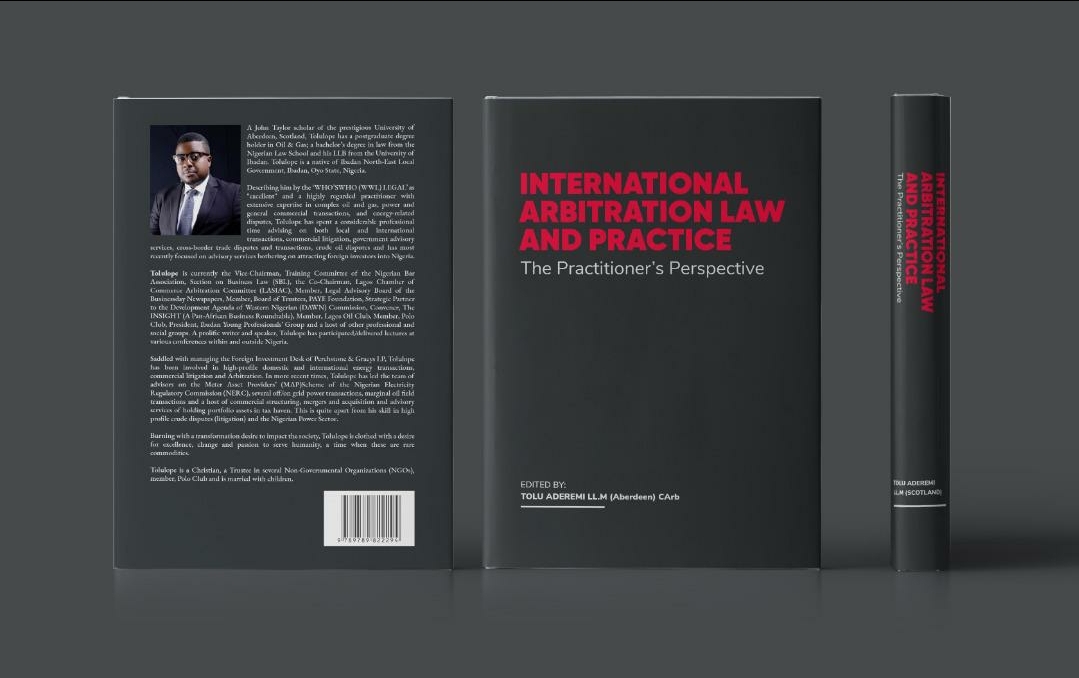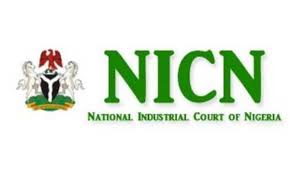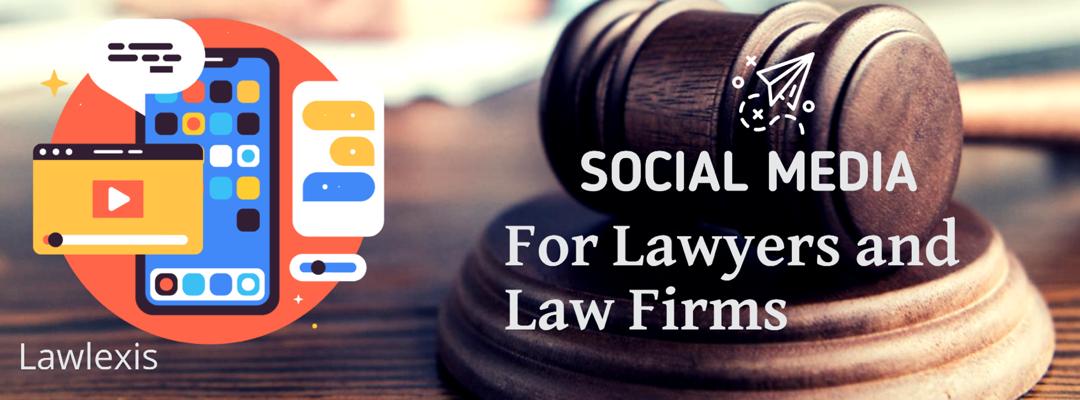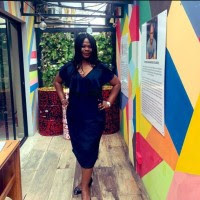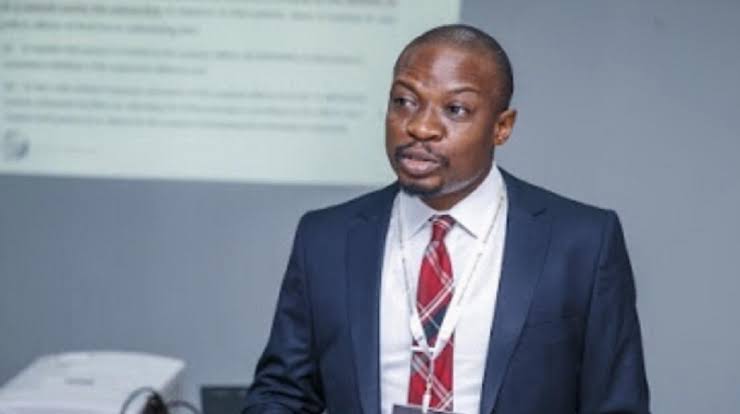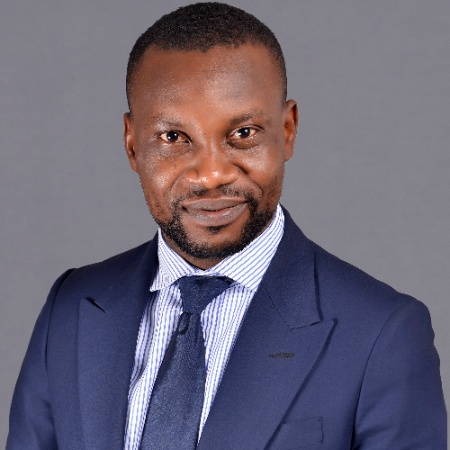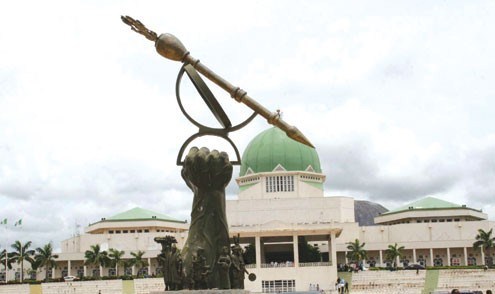
by Legalnaija | Dec 15, 2020 | Uncategorized
It
has now become a quadrennial occurrence for the Nigerian polity to experience
debates on the constitutionality or otherwise of the President’s disobedience
to summons/invitation by the National Assembly to account for executive
actions/inactions. This debate largely
arises from the perceived conflict between the provisions of Sections 67(1) and
89 of the Constitution of the Federal Republic of Nigeria 1999 (as
amended).
Ideally,
a country governed by responsible leaders would not put its citizen through the
unnecessary venture of indulging in such constitutional debate, because an
invitation by the apex legislative house should not be treated with levity by
the President, but be rather obeyed out of respect to the sovereign will of the
people. This debate has once again become very necessary given the refusal of
President Muhammadu Buhari – on the advice of his Attorney General- to honour
and obey an invitation by the National Assembly to come account for some
executive decisions and actions.
It
is necessary to clarify from the onset that any debate which involves the
interpretation of the sacrosanct provisions of our precious and organic
Constitution can never be otiose, moot or academic, but such debates contain
live issues that can (and should) be examined by the Courts (and legal
scholars) at any time. Please see the case of ARDO v INEC (2017) LPELR-41919 (SC).
Thus,
proponents of the school of thought (led by the Honourable Attorney General of
the Federation) who subscribe to the opinion that President cannot be summoned
or compelled to attend a joint sitting of National Assembly, or of either House
of the National Assembly; or that the President has a constitutional right to
refuse to honour such invitation where issued, hinge their arguments on the
provisions of Section 67(1) of then Constitution which provides thus:
“The President MAY attend any joint meeting of
the National Assembly or any meeting of either House of the National Assembly,
either to deliver an address on national affairs, including fiscal measures or
to make such statement on the policy of government as he considers to be of
national importance.” (underlining
and capitalization mine for emphasis).
This
School of thought subscribe to the view that the use of the modal verb MAY in
this section confers a discretion on the President, which he could choose not
to exercise. However, this invokes the question; does the use of the word “may”
in a statute or the Constitution indeed confer a discretion? Or can it be
interpreted as being mandatory? The Court of Appeal acknowledged this
jurisprudential dilemma in the case of AROWOSAYE
V OGEDENGBE (2008) LPELR-3701 (CA) when the Noble Lord Chima Centus Nweze
JCA (as he then was, now JSC), held as follows:
“The interpretation
of the word “may” has always posed some difficulties. In some circumstances,
the word has been held to import discretion. However, in other circumstances, it has been held to be mandatory.”
(underlining mine for emphasis).
In
the case of UDE V NWARA & ANOR
(1993) LPELR-3289 (SC) the Apex Court laid down the law that the use of the
word “may” in a legislation should be construed as mandatory when it imposes a
duty on a public official. The Apex Court held as follows:
“I agree with Chief
Umeadi that although Section 28(1) of the Law states that the lessor “may enter
a suit”, “may” should be construed as
mandatory i.e. as meaning “shall” or “must. I believe that it is now the
invariable practice of the Courts to interpret “may” as mandatory whenever it
is used to impose a duty upon a public functionary the benefit of which enures
to a private citizen.” (underlining mine for emphasis).
Therefore,
this writer submits that any argument that attempts to excuse the President’s
disobedience to National Assembly invitations by virtue of the purported
discretion conferred on him in Section 67(1) of the Constitution is not pure or
absolute, but is rather standing on a shaky and greatly contested legal
foundation as the modal verb “may” can be construed to connote compulsion to
perform an act and not discretion.
Furthermore,
there is the fundamental prescription that in the interpretation of the
provisions of the Constitution, Sections of the Constitutions must be construed
holistically and not in isolation (Please see the case of A.G FEDERATION V ABUBAKAR (2007) All FWLR (Pt. 389) 1264, 1289 -1291).
Also, the Courts (and indeed officers of the Courts including the Honourable
Attorney General of the Federation) must interpret the Constitution in such a
way that the elementary principles of Government are upheld (Please see the
case of SARAKI V FRN (2016) 3 NWLR (PT
1500) 531, 631 -632). The Constitution must never be interpreted in any
manner that would do violence to the fundamental principles upon which our
democracy is built. Please see the case of DAPIANLONG
V DARIYE (2007) 8 NWLR (PT. 1036) 239).
Therefore,
what are the fundamental principles of government upon which our Constitution
is based that must guide an interpreter of the Constitution? Our 1999
Constitution is premised upon the governmental principles and ideals of democracy,
federalism, separation of powers and checks and balances. The provisions of
Chapter 1 of the Constitution emphasizes these underlying principles which form
the rubric of the administration of this Country. Any attempt to interpret the
provisions of the Constitution must be done in such a manner that gives effect
to these underlying principles. Any purported interpretation that does violence
to these principles are untenable and null. Please see the case of SKYE BANK V IWU (2017) LPELR-42595 (SC).
Therefore,
in construing the provisions of Section 67(1) of the Constitution, one needs to
examine the provisions of other Sections of the Constitution which can be
interpreted together with it to unravel the intention of the framers of the
Constitution. It is clear that from the ipsissima
verba of that section, the President does not need the invitation of the
legislature before he exercises his powers under this Section. This writer
submits that the purpose of this Section 67(1) of the Constitution is to give a
constant access to the President to address either or both houses of the
National Assembly even without the invitation of the National Assembly, and not
necessarily to confer a discretion on the President to refrain from attending
sessions of the legislation where necessary.
It
is trite that the draftsperson of any legislation does not use words
extravagantly. Every single word in a legislation has its purpose. This writer
submits that the closing phrase of Section 67(1) of the Constitution lends
further credence to the interpretation that this Section only serves to confer
an open and constant access on the President to attend National Assembly
sittings when the President so desires. The said subsection ends with the
clause “…as he considers to be of
national importance.”
It
is clear that it is the President who has the authority to determine what is of
national importance that warrants his visitation to the National Assembly. The
power conferred on the President in this Section can only be exercised for the
purposes stated in this section and cannot extend to cover other purposes. The
President needs not wait for an invitation from the federal legislative body
before exercising this Section 67(1) power.
The
National Assembly on the other hand has been given the powers to investigate
the conduct of affairs of any person or authority charged with the duty of
administration. Please see Section 88(1)(b) of the Constitution. Section 89 of
the Constitution further gives the National Assembly the powers to summon any
person to appear before it to give evidence in respect of such investigation. Section
88(1)(b) of the Constitution provides that each House of the National Assembly
shall have the power to direct an investigation into the conduct or affairs of
any person, authority, Ministry of government charged with the duty of
executing or administering laws enacted by the National Assembly.
The
Constitution unequivocally provides in Section 5 of the Constitution that the
executive powers of the Federation shall be vested in the President and may be
exercised directly by him and shall extend to the execution and maintenance of
this Constitution as well as all laws made by the National Assembly.
A
community reading of the provisions of Sections 5, 67, 88 and 89 of the
Constitution shows the intentions of the draftsperson of the Constitution to
infuse the principle of checks and balances in the administration of the
Country. The President is the head of the executive arm of government. He is
the number one person charged with the administration of the laws of the
Federation. The Provisions of Section 88 of the Constitution shows the clear
intention of the draftsperson of the Constitution to subject the exercise of
executive powers under Section 5 of the Constitution to checks, investigations
and balances by the National Assembly.
This
is the fundamental principle upon which our Constitution is built. The principle
of checks and balances is infused in our system of government and the Courts
have always acknowledged this principle. In the case of GOVERNOR OF EKITI STATE V OLAYEMI (2016) 4 NWLR (PT. 1501) 1 @ PP.
41-42 (PARAS. G-A) RATIO 12, the Court of Appeal held thus:
“The Constitution of
the Federal Republic of Nigeria, 1999 (as amended), despite of its recognition
of the doctrine of separation of powers, has expressly made provisions for the
legislature to exercise limited oversight functions in relation to the
executive at both the Federal and State levels. So the concept and application
of the concept of separation of powers under the Constitution does not give
each arm of government the liberty to act without being subject to any
restraint or check by another arm of government.”
This
writer submits that the powers donated to the National Assembly under Section
88 and 89 of the Constitution is in conformity with this principle of checks
and balances which operates as an limitation to the fundamental doctrine of
separation of powers.
Admittedly,
the President enjoys constitutional immunity under Section 308 of the
Constitution and cannot be arrested or compelled to attend the proceedings of
any Court. Likewise, no civil or criminal proceedings shall lie against the
President in his personal capacity during his tenure. However, the National
Assembly is not a Court, it is a distinct arm of Government that derives its
powers directly from the Constitution. The investigative powers conferred on
the National Assembly by virtue of Section 88 of the Constitution does not
elevate the National Assembly into the status of a Court. The Courts belong to
Judicial arm of Government while the National Assembly belongs to the
Legislative arm of Government. Therefore, this writer submits that the provisions
of Section 308 of the Constitution shall apply only to the extent that the
President cannot and shall not be arrested by the security forces during his
presidency. However, this does not confer a blanket immunity on the President
to refrain from attending National Assembly summons and proceedings.
I
have submitted so much in this article. It is perhaps neater and tidier if I
summarize by way of recapitulation as follows:
a.
The President has the
powers to attend the any or the joint houses of the National Assembly at any
time to deliver an address on national affairs on fiscal issues and
governmental policy as he considers of national importance. The President does
not need an invitation from any of the legislative house to exercise this
power.
b.
The National Assembly
has the powers to investigate and invite or summon any member of the executive
including the President to account for the execution and administration of the
country and the laws of the land.
c.
The President does
not have any discretion to exercise when he is summoned by the National
Assembly to answer questions relating to the administration of the Country. He
is bound by his oath of office and the sovereign will of the people to honour
such invitation.
d.
The provisions of
Section 308 of the Constitution does not grant the President any immunity to
refrain from giving testimony before the National Assembly or answering any
questions in respect of any investigation thereat.
e. The President cannot be arrested by the Police of the
Security forces for any reason whatsoever. However, if he fails to honour a
summons to appear before the National Assembly, the National Assembly can
commence impeachment proceedings against him as such act amounts to gross misconduct
as defined by the learned jurist Niki Tobi JSC in the case of INAKOJU V. ADELEKE (2007) 4 NWLR (Pt 1025) 423.

by Legalnaija | Dec 6, 2020 | Uncategorized

The Nigerian agricultural sector is brimming
with massive investment opportunities, across the value chain, for both local
and foreign investors, with the current favourable policies of the government
aimed at making the sector a viable base of the economy. The development
framework for the agricultural sector is captured in the Agriculture Promotion
Policy (“APP”) 2016-2020, which sets out strategies for stakeholders to build a
sustainable agribusiness economy with the capacity to attain food security,
import substitution, economic diversification and job creation.[2] The APP identifies viable investment
areas including agricultural production,[3] distribution and supply of
production inputs,[4] provision of enterprise specific
infrastructure, agricultural produce storage, processing and marketing of farm
produce, agricultural research and development, commodity export and
agricultural support services. The latest policy also prioritises private
sector participation, in partnership with government, as the vehicle to fast track
agricultural growth and development. In recognition of the government’s effort
to boost investment in agribusiness, this article provides a regulatory guide
to agricultural investment in Nigeria.
1. Legal Framework
for Investment in the Agricultural Sector in Nigeria
There is no specific legal
framework for the regulation of investment in the Nigerian agricultural sector.
However, there are non-sector specific regulations and regulators
impacting on agricultural
investment. Some of these include:
a. The Companies and Allied
Matters Act, 2020
The CAMA establishes the
Corporate Affairs Commission, which is the regulatory agency overseeing the
registration and regulation of business entities in Nigeria. The newly enacted
Companies and Allied Matters Act, 2020 (CAMA 2020) makes provision for dynamic
business structures, such as Limited Liability Partnerships (“LLPs”) and the
Limited Partnerships (“LPs”), which were previously unrecognised. Investors
have the option to use a private or public company, an LP, a general
partnership, or an LLP as the investment vehicle. To this end, it is advisable
to register a corporate entity as the vehicle for an investment of this
magnitude because only corporate entities can access certain government
incentives in the agricultural sector.
b. Nigerian Investment
Promotion Commission (NIPC) Act
The Nigerian Investment
Promotion Commission Act establishes the Nigerian Investment Promotion
Commission (NIPC) to encourage, promote, and coordinate investments into
Nigeria. The Agency provides services necessary for the grant of business entry
permits, licenses, authorisations, and incentives to businesses with foreign
participation. Businesses with full indigenous participation are not to
register with the NIPC.
c. The National Office for
Technology Acquisition and Promotion (NOTAP) Act
The NOTAP Act[5] establishes the National Office for
Technology Acquisition and Promotion. The agency is responsible for monitoring,
evaluation, and registering agreements for the transfer and acquisition of
foreign technology. The agency also promotes technological research and
development in vital sectors of the economy. Technology transfer agreements for
the importation of foreign agricultural machinery and equipment fall within the
regulatory oversight of NOTAP. Where a contract registrable with NOTAP is not
registered, the contract remains valid.[6] However, monies due under the
contract to be paid a person outside Nigeria cannot be paid through the Central
Bank of Nigeria or any CBN licensed bank in Nigeria, unless a copy of the
contract certified by NOTAP is tendered by the parties.[7] This Act is applicable to the
agricultural sector as modern-day agri-business involves the importation and
use of foreign technologies, which may be registrable under the Act.
d. Labour Act
The Labour Act prescribes
the minimum rights, working conditions and terms of employment for workers
across all sectors of the economy. Labour Act only covers employees engaged
under a contract of manual labour or clerical work in private and public
sector.[8] Since agricultural
production and processing in Nigeria is virtually unmechanised, workers in this
sector are guaranteed safeguards provided under the Act. Although
employers are not allowed to make arbitrary deductions from employee’s wages,[9] statutory deductions to the National
Social Insurance Fund (NSITF), National Housing Fund (NHF), Industrial Trust
Fund (ITF), and the National Pension Commission (PenCom) are dependent on
the size of employee’s remunerations.
2. Regulatory
Framework and Agencies
2.1 Federal Ministry of
Agriculture and Rural Development
The Federal Ministry of
Agriculture and Rural Development (“the Ministry” or “FMARD”) has the mandate
to regulate the agricultural sector in Nigeria, ensure availability of
agricultural produce, stimulate large-scale agricultural investment, oversee
the production and supply of raw materials to agribusinesses, provide markets
for the products of the industrial sector, formulate programmes, policies and
actions to improve the agricultural sector, and issue regulatory permits and
licenses. The Ministry works alongside various government departments,
agencies, and parastatals to ensure agricultural products meet international
standards. Investment in Nigeria’s agricultural sector is mostly monitored by the
Ministry.
2.2 Central Bank of Nigeria
(CBN)
The CBN plays a significant
role in the fiscal regulation of the agricultural sector. It issues Certificate
of Capital Importation (CCI) through Authorised Dealers for capital brought
into the country through foreign investment.[10] The primary purpose of the CCI is
to guarantee access to the official foreign exchange market for repatriations
of capital, dividends, interest and returns on investment by foreign investors
through authorised channels.
The CBN, as part of
government policy to increase food production and security in the country, has
intervened in the agriculture sector through schemes like the Anchor Borrowers’
Programme and the Commercial Agricultural Credit Scheme. This intervention is
targeted at improving local production of four commodities, namely: rice, fish,
sugar, and wheat. These interventions have helped improve access to financing
and procurement of modern equipment for participants in the sector.
3. Foreign Participation in
the Agricultural Sector
A foreigner can invest and
participate in the operation of any business enterprise in Nigeria, provided
that the investment is registered with the National Investment Promotion
Commission (“NIPC”). Registration with the NIPC is a one-off and there is no
requirement to renew or update the registration. There are also no additional
fees to be paid as a continuing obligation.
Furthermore, the Citizenship
and Business Department of the Ministry of Interior (“MOI”) oversees the
enforcement of the provisions of the Immigration Act 1963 as it relates to the
establishment of businesses with foreign participation and the employment of
expatriates in Nigeria. Any enterprise with alien participation is required to
obtain a Business Permit from the MOI before commencing operation in Nigeria.[11] A company intending to hire foreign
personnel is required to obtain expatriate quota from the Ministry of Interior,
which may be done jointly with an application for a business permit.
4. Acquisition of Land and
Perfection of Title
Nigeria is blessed with
large tracts of uncultivated, arable land which makes agriculture a viable
sector of the economy with high potential for employment generation, food
security and poverty reduction.[12] The Nigerian constitution and the
Land Use Act (“LUA”) guarantee citizens the right to acquire and own immovable
property or interest in immoveable property. However, foreigners are precluded
from land ownership under the Land Use Act.[13] Notwithstanding the provisions of
the LUA, a foreign-owned entity
incorporated in Nigeria may
acquire and hold interest in land in any state in Nigeria.[14]
To obtain land situated in
an urban area,[15] the investor will make an
application for property allocation to the Governor through the Lands Bureau.[16] Land may also be acquired from
individuals and land-owning families by the assignment of the unexpired residue
of their rights of occupancy. The investor must proceed to register the
transfer of interest in land at the Land’s registry and obtain the governor’s
consent upon the payment of applicable fees. This is known as perfection of
title. The process of perfection helps to secure title to the land and raises a
presumption of ownership in favour of the person whose title is registered. It
is instructive to note that failure to obtain governor’s consent renders the
transaction inchoate.[17] Lands in non-urban areas, which are
most suitable for agricultural purposes,[18] are subject to management and
control of the local government. A local government may grant a customary right
of occupancy to any person or organisation over non-urban land within its
jurisdiction for agricultural, grazing and ancillary purposes.[19] Acquisition of land from the local
government is similar to what is obtainable from the Governor with the
exception of less administrative fees and red tape since the process is mostly
governed by customary law.
A customary right of
occupancy cannot be granted to an individual over land in excess of 500 hectares
for agricultural purposes and not more than 5,000 hectares for grazing
purposes, except with the consent of the Governor.[20] The Act provides no such limitation
for business entities. The transfer of interest in land situated in non-urban
areas by way of sale or lease by a holder of a customary right of occupancy is
legally proscribed and penalised.[21]
In recognition of the
importance of security of interest and title to land to foreign direct
investments, the World Bank recently included “ease of property registration”
as one of the parameters used in assessing the ease of doing business in
various regions. Despite Nigeria’s improved ranking in terms of ease of doing
business, the process of perfection of title in Nigeria is challenging and
cumbersome due to bureaucratic processes and administrative malpractices. The
entire process of registration of title in Nigeria takes between six months to
two years. This may serve as a disincentive to potential investors in the
agricultural sector. With the significant emphasis on agricultural development
in the country, there is still much to be done to achieve a seamless and investor
friendly property registration process, to improve Nigeria’s global ease of
business ranking. Potential investors are advised to seek the professional
guidance of a legal practitioner with a proper understanding of the title
registration system, to avoid systemic bottlenecks.
5. Tax Compliance
The Companies Income Tax
Act,[22] Value Added Tax Act,[23] Capital Gains Tax Act[24] and the recent Finance Act 2019[25] provide guidelines for the
computation and remittance of tax for corporate bodies. The Federal Inland
Revenue Service (“FIRS”) is the agency saddled with the responsibility of
assessment and collection of tax accruing to the Federal Government of Nigeria.[26]
Following registration with
the CAC, business entities are automatically issued tax identification numbers.
This has dispensed with the need for companies to apply for the issuance of Tax
Identification Numbers from the FIRS after incorporation. To register with the
FIRS, an application is made to the Tax Controller in the FIRS office covering
the area in which the company is located. The FIRS issues a tax clearance
certificate for the period of 6 (six) months upon completion of registration
for remittance of income tax and VAT.
6. Agricultural Investment
Incentives
As part of its efforts to
provide an enabling business environment to aid the improvement of productivity
of the agricultural sector, the Federal government has progressively introduced
a number of incentives to encourage private sector participation in the
agricultural industry and the influx of foreign direct investments (“FDIs”).
While some of these incentives are in form of tax holidays, exemptions, and
reliefs, others are based on sector-specific government policies, performance
of the companies as well as relevant international investment treaties. Some
incentives worthy of note are listed below.
6.1 Taxation
incentives
Although, no business entity
is given a blanket exemption from paying taxes, companies operating within the
agricultural sector are exempted from paying specific taxes that are applicable
to companies in other sectors. The Companies Income Tax Act[27] and other fiscal legislations[28] offer a variety of tax incentives
to attract potential investors and entrepreneurs.
6.1.1. Exemption
from Companies Income Tax
Companies wholly engaged in
agricultural business or trade are exempted from the minimum corporate income
tax which is currently set at 20 percent for medium enterprises and 30 percent
for large companies.[29] Small businesses with an annual
turnover of less than twenty five million or less are totally exempted from
paying corporate income tax under the Finance Act. The Finance Act[30] also exempts companies within the
first four calendar years of operation from the obligation to pay corporate
income tax in Nigeria.
6.1.2. Exemption
from Value Added Tax (VAT)
Importation and purchase of
machinery/ equipment for agricultural production, processing or other
agro-allied projects is exempted from value added tax and import duty tariffs.
Agricultural input including insecticides, rodenticides, fungicides, herbicides,
anti-sprouting products, plant growth regulator, disinfectants as well as
mechanical appliances for dispersing such substances are VAT exempt.[31]
6.1.3. Tax Relief
for Research and Development
Being a developing country,
an important objective of using incentives to attract investment is the
transfer of technology.[32] To reward research and innovation,
the CITA guarantees a tax deduction not exceeding ten percent of the company’s
profit for every taxable year. Companies involved in agricultural R&D for
commercialization are allowed up to twenty percent tax credit on their
qualifying expenditure for that purpose, provided the research is carried out
in Nigeria and is connected with the business from which the income or profit
is derived. Innovative findings may be patented and protected in accordance
with industrial property rights.[33]
6.1.4. Investment
Tax Relief
Companies located at least
20 kilometres away from essential infrastructure, such as electricity, water,
tarred roads and telephone services, are granted tax relief for three years on
expenses incurred on the infrastructure.[34] However, the extent of the tax
relief is determined by the nature of facilities procured.[35] This tax deduction is not
applicable to companies already granted pioneer status.
6.1.5. Inplant
Training Incentive
Agro -based companies with facilities
for inplant training qualify for two percent tax concession for a period of
five years. Such programs, if properly implemented, are used as fiscal
incentives to promote education, industrial training and skill acquisition.
6.1.6. Tax Credit
A company is entitled to a
tax credit of 1% for large companies and 2% for SMEs, where the income tax is
paid 90 (ninety) days before the due date for filing.[36]
6.1.7. Capital
Allowance
Companies operating within
the agricultural sector are entitled to claim full capital allowances on
taxable profits within a taxable year and can carry forward unutilized capital
allowances indefinitely. Companies in agricultural trade or business carry forward
their losses indefinitely.[37]
6.1.8. Reconstruction
Investment Allowance
The CITA allows a ten
percent capital allowance on expenditure incurred on the purchase of
agricultural plant and equipment, in addition to the initial allowance granted
under the Act.[38] This incentive is granted once in
the lifetime of the qualifying capital expenditure.
6.1.9. Rural
Investment allowance
This is a tax incentive
granted at varied rates to companies that incur capital expenditure on the
provision of facilities and infrastructure in rural areas in the course of
doing business, depending on the type of facilities provided.[39] This incentive is granted to
encourage corporate social responsibility and investment in economically
disadvantaged regions.
7. Agricultural and
Agro-Allied Sector Incentives
There are certain
sector-based incentives specifically designed for the agricultural sector.
Profits made from the export of agricultural produce are tax exempt, provided
that the proceeds from such export are used exclusively for the purchase of raw
materials, machinery or equipment.[40] There is also a ten percent tax
deductible for agro-based companies that export sixty percent of their produce.
Agro-based companies also enjoy a tax holiday for an initial period of five years
renewable for a maximum of three years, subject to the company’s performance.[41]
8. Pioneer Status
Incentive Scheme
The Pioneer Status Incentive
(“PSI”) is a fiscal incentive under the Industrial Development (Income Tax
Relief) Act (“IDITRA”) granted to support eligible corporate entities in their
formative years through a tax exemption for an initial period of three years
renewable for a maximum two years. Companies engaged in the cultivation,
production and processing of agricultural produce as well as other activities
along the agricultural value chain are granted pioneer status with attendant
tax exemptions.[42] Dividends paid by the pioneer
company during the period of the grant are exempt from taxation as long it is
paid out of income exempted from tax.[43] Also, pioneer industries located in
economically disadvantaged areas of the federation are entitled to 100 percent
tax holiday for 5 years and an additional 5 percent capital depreciation
allowance.
9. Local Raw Materials
Utilisation
To promote domestic
production and local content development, a twenty percent tax concession for
five years is granted to agro-allied businesses that attain the seventy percent
minimum local raw materials sourcing.
10. Exemption of Taxation on
Interest on Loans
Interest payable on loans
granted to any company engaged in agricultural trade or business is exempted
from taxation, provided the moratorium does not exceed 18 months.[44] In the same vein, interest accruing
on loans granted to individuals engaged in agricultural trade or business is
not subject to taxation.[45] This serves to incentivize
commercial and microfinance banks to provide affordable financing solutions to
agribusinesses.
11. Financial Aid for
Agribusinesses
The Agricultural Credit
Guarantee Scheme (“ACGS”), a CBN initiative mostly for small scale farmers,
guarantees the payment of up to 75 percent of the principal sum and interest
for credit granted for agricultural purposes, to enhance credit availability in
the agricultural sector.
To complement existing
initiatives, the CBN in collaboration with the FMARD recently established the
Commercial Agriculture Guarantee Scheme (“CACS”) to provide concessionary
funding for agricultural investment. The Scheme, which runs till September 2025,
is to be funded by a 200 Billion Naira bond raised by the Debt Management
Office, to finance eligible commercial agricultural enterprises.[46]
The Nigerian Incentive-Based
Risk Sharing for Agricultural Lending[47] was incorporated by the CBN in 2013
to improve cash flow in specific agricultural value chains. Other sources of
funds include Bank of Agriculture supervised by the Ministry to provide
sustainable agricultural financial services and unlock productivity through
easy access to finance.
To encourage international
trade and investment by cutting down on costs of international transactions,
Nigeria has entered into Double Taxation Agreements (“DTAs”) with a number of
countries to eliminate double taxation with respect to taxes on income and
capital gains tax[48] or any taxes of similar character
imposed by the laws of the foreign country involved. Countries with which
Nigeria has signed subsisting DTAs include Belgium, Canada, China, France, the
Netherlands, Pakistan, Philippines, Romania, South Africa, and the United
Kingdom.
12. Labour Intensive Mode of
Production
To boost employment rates in
the Nigerian labour market, companies with high labour to capital ratio or
machinery operated with minimal automation are entitled to a tax concession for
five years. The rate of the concession is graduated so that companies employing
above 1000, 200 or 100 persons will get fifteen, seven and six percent tax
rebate, respectively.
13. Assurances guaranteed by
the Nigerian Investment Promotion Council
As part of its commitment to
provide a commercially enabling environment, the Federal Government, under the
auspices of the NIPC, has provided certain investment guarantees captured in
the Nigerian Investment Promotion Council Act.[49] In addition to all these
safeguards, the Nigeria government is willing to enter into investment
promotion and protection agreements to provide reciprocal baseline protections
for foreign investments.
14. Recommendations
Nigeria now ranks 131 on the
World Bank’s 2020 Doing Business Index, having risen by 39 places since the
inauguration of the Presidential Enabling Business Environment Council (“the
Council”) in 2016, to minimize the constraints associated with doing business
in Nigeria.[50]
In spite of this commendable
achievement, there are a few shortcomings which may deter potential investors
in search of investment destinations. Some of these include challenges
associated with land ownership and security of title, complex regulatory
framework, corruption and administrative malpractice, mismanagement of funds,
poor industrialisation of the agro-industry, scarcity of locally sourced
infrastructure for mechanized farming, the rising cost of agricultural inputs
and the cost of doing business in Nigeria.
Although, the Nigerian
agro-industry boasts of a high demand for agricultural products along with an
abundance of human and natural resources, there is a chronic supply deficit in
the industry which has led to scarcity of produce, consistent hikes in the
price of food items and an increasing dependence on food importation. To
reverse this trend and achieve the aims of APP,[51] investment in agribusiness should
be focused on the expansion of domestic production capacity.[52]
Despite the expanse of
uncultivated land available in the rural areas, agricultural performance is greatly
impaired by the inadequacy of rural infrastructure. Basic facilities such as
access to good road networks, electricity, and portable water are essential to
rural agriculture. To foster full economic participation, there is need to
provide infrastructure to create an enabling environment for agricultural
undertakings in the rural areas. In terms of commercialisation of agricultural
produce, good road network will improve market linkages for rural farmers,
boost downstream activities in the agricultural sector and ease the process of
getting products to the final consumers. In addition, modern storage and
processing facilities will enhance the commercialisation of products and reduce
post-harvest losses.
In addition to the general
economic factors that impact on agri-businesses, limited access to land is a
constraint that cuts across all states in Nigeria.[53] Thus, simplifying the process of
property acquisition and title ownership will motivate prospective investors
and entrepreneurs.[54]
The government should
prioritise the local production of agricultural machinery, agricultural input,
and mechanized processing/storage technologies through strategic partnerships
with manufacturers of agricultural support technologies. Transfer of technology
will significantly lower the rate of importation of agricultural input and
boost local content development.
Huge capital requirement for
agricultural investments is a major disincentive for local investors.[55] In view of this, the CBN is to be
commended for its effort to enhance access to finance to enable all
stakeholders, FMARD, the private sector, agribusiness investors, states, LGAs
fulfil their roles optimally.[56] Proper management of allocated
funds will improve the efficiency of institutional agencies,[57] encourage the formation of new
enterprises across the agricultural value chain and encourage healthy
competition within the sector.
Although a number of foreign
investors have benefited from available incentives or partnered with the
government on agricultural initiatives, these incentives are not easily
accessible to SMEs unable to meet the requirements for eligibility. To this
end, incentives should be made easily obtainable to agricultural and
agro-allied businesses, irrespective of the scale of operations, to open up the
sector for increased participation. Indigenous agricultural enterprises,
especially SMEs, should be given priority in the disbursement of financial aid.
Over the years, the pattern
of performance in agricultural production has been uneven, with some states
performing better than others. Thus, direct engagement with the respective
local governments will improve each state’s performance in the agribusiness
space. Likewise, synergy between federal and state government ministries,
departments, and agencies (“MDAs”) will stimulate a nationwide growth in the
agribusiness sector.
To maintain quality
assurance and ensure local agro-products can compete favourably in the export
market, relevant authorities should monitor the upstream and downstream
activities in the agricultural industry to ensure production and processing
across the agribusiness value chains are compliant with regulatory standards.
Effective implementation of
these recommendations will assist Nigeria in achieving the full potential of
the agricultural sector and pave the way to becoming Africa’s agricultural
powerhouse.
15. Conclusion
Driven by economic realities
and the clamour for economic diversification, the current administration has
pledged its commitment to making the agricultural industry a focal point for
economic revival in Nigeria. The Federal government’s policy of economic
deregulation and liberalisation has opened a window of opportunity for private
investors.
With the recent mandate to
diversify the Nigerian economy, the opportunities for investment in the
agricultural/agro-allied industry are endless. Agriculture is the best venture
for investors looking to invest in low-risk, high-reward sectors of the
Nigerian economy with guaranteed return on investment.
Consistent and committed
efforts to the creation of more favourable policies and fiscal incentives will
motivate upcoming players in the industry and trigger an exponential increase
in the rate of agricultural investment. It is also important to create
awareness of existing incentives to stimulate the proper exploitation of these
incentives along the agricultural value chain. Prospective and existing
agribusinesses are advised to maximise available incentives, towards a more
vibrant agricultural sector.
_______________________________________________________________
For further information on
this article and area of law, please contact
Uche Matthew or
Oluwademilade Odutola at
1.
P. A. Ajibade & Co., Lagos by Telephone
(+234.1.270.3009;
+234.1.460.5091) Fax (+234 1 4605092)
Mobile (+234.8066.444.001,
+234.8097.904.768)
Email: umatthew@spaajibade.com, oodutola@spaajibade.com
www.spaajibade.com
[1] Uche
Matthew and Oluwademilade Odutola, Associates, Corporate Finance and
Capital Markets Department, SPA Ajibade & Co., Lagos, Nigeria.
[2]
Odunze, Daisy Ifeoma A review of the Nigerian Agricultural Promotion
Policy (2016-2020): Implications for entrepreneurship in the agribusiness
sector (2019) https://journalissues.org/wpcontent/uploads
/2019/04/Odunze-.pdf accessed on 4 September 2020.
[3]
This is comprised of four sub-activities: crop production, fishery, forestry,
and livestock.
[4]
Such as fertilizers, seeds, and other agro-chemicals.
[5]
National Office for Technology Acquisition and
Promotion Act Cap. N62 LFN 2004.
[6]
Section 7 of the National Office for Technology Acquisition and Promotion
provides that the consequence of non-registration of an agreement for
technology transfer is the prohibition of the making of payments to the foreign
recipient rather than the invalidation of the contractual agreement. This was
the crux of the decision of the Court of Appeal in Stanbic IBTC V. FRCN &
Anor (2018) LPELR-46507(CA).
[7]
Ibid, Section 4, 5(2), and 7, respectively.
[8]
LawPadi 9 Things Every Nigerian Should Know About The Labour Act (29th June) https://lawpadi.com/9-things-every-nigerian-know-labour-act/ accessed
2 September 2020.
[9]
Section 5 of the Labour Act, Cap L1 L.F.N. 2004.
[10]
According to Section 15 of the Foreign Exchange (Monitoring and Miscellaneous
Provisions) Act, Cap F34 L.F.N. 2004, the Certificate of Capital Importation is
to be issued to the foreign investor within 24 hours of the importation of
foreign capital.
[11]
Once obtained, there are no further requirements to update or renew the
application for a Business permit. There are also no additional fees to be paid
as a continuing obligation, save for an instance where the company seeks to
make an amendment to the Business Permit.
[12]
Nigerian Investment Promotion Council Opportunities: Agriculture https://nipc.gov.ng/opportunities/agriculture/ accessed
on 5 August 2020.
[13]
George Etomi & Partners Doing Business in Nigeria – A Guide for
Foreign Investors (2017) https://www.lexology.com/library/detail.aspx?g=5b9a3ddb-6714-46d1-8672-ad5cf8bd0771
accessed on 5 August 2020.
[14]
Section 43 of the Companies and Allied Matters Act 2020 provides that upon
incorporation in Nigeria, the foreign-owned entity possesses the rights and
privileges of a natural person.
[15]
Statutory right of occupancy is the interest granted or conveyed in respect of
land in urban areas.
[16]
If the application is granted, the land-owner is then issued a Certificate of
Occupancy (C of O) by the Governor as evidence of their occupational right to
the land.
[17]
Although Section 22 of the Land Use Act contextually proscribes the holder of a
statutory right of occupancy to alienate his right without the consent of
Governor first had and obtained, it does not prohibit the making of a written
agreement to transfer the vendor’s entire right prior to obtaining requisite
consent from the Governor, if the agreement is subject to the consent of
Governor being obtained subsequently.
[18]
Land fragmentation is not very common in non-urban areas.
[19]
Section 6 of the Land Use Act, Cap L5 L.F.N 2004.
[20]
Ibid, section 6(2).
[21]
Oludayo G Amokaye, Agricultural law in Nigeria: Overview (1
March 2015) https://uk.practicallaw.thomsonreuters.com/9-605-0428?transitionType=Default&contextData=(sc.Default accessed
12 August 2020. See also Ibid, section 36(6) of the Land Use Act.
[22]
Companies Income Tax Act Cap. C21. L.F.N. 2004.
[23]
Value Added Tax Cap V1 L.F.N. 2004.
[24]
Capital Gains Tax Cap C1 L.F.N. 2004.
[25]
Finance Act 2019.
[26]
However, the Federal Capital Territory Internal Revenue Service (“FCT IRS”)
charged with the responsibility of assessing and collecting certain taxes in
the FCT, which also accrue to the Federal government.
[27]
Companies Income Tax Act Cap. C21. L.F.N. 2004.
[28]
Personal Income Tax Act Cap P8 L.F.N. 2004, Value Added Tax Cap V1 L.F.N. 2004,
Capital Gains Tax Cap C1 L.F.N. 2004 and the Finance Act 2019.
[29]
Section 33 of the Companies Income Tax Act Cap. C21. L.F.N. 2004.
[30]
Finance Act 2019.
[31] Detailed
List of Items Exempted From Value Added Tax (Vat) Info 9701 (3)
https://www.proshareng.com/news/TAXATION/DETAILED-LIST-OF-ITEMS-EXAMPTED-FROM-VALUE-ADDED-TAX–VAT—INFO-9701–3-/14284.
[32]
Odunze, Daisy. A Review of the Nigerian Agricultural Promotion Policy
(2016-2020): Implications for Entrepreneurship in the Agribusiness Sector (2019) https://journalissues.org/wp
content/uploads/2019/04/Odunze-.pdf accessed on 4 September 2020.
[33]
Section 26 Companies Income Tax Act. https://journalissues.org/wp
content/uploads/2019/04/Odunze-.pdf accessed on 4 September 2020.
[34] Oghoghomeh,
Tennyson An Assessment of Agribusiness Tax Incentives in Nigeria https://www.ijbed.org/cdn/article_file/i-4_c-46.pdf accessed
on 5 September 2020.
[35]
Section 40(11) of the Companies Income Tax Act Cap. C21. L.F.N.
2004.
[36]
Section 18 of the Finance Act, amending S.77 of the Companies Income Act.
[37]
Ibid, Section 31(3).
[38]
Section 32 Companies Income Tax Act.
[39]
Ibid, Section 34.
[40]
Section 9 of the Finance Act, amending Section 23(1)(q) of the Companies Income
Tax Act.
[41]
Ibid, Section 9(c).
[42]
Section 10(2)(a)(b) Industrial development (Income Tax Relief) Act Cap I7
L.F.N. 2004.
[43]
Ibid, section 17(3).
[44]
Section 11(2) Companies Income Tax Act Cap. C21. L.F.N. 2004.
[45]
Section 19(7) Personal Income Tax Cap P8 L.F.N. 2004.
[46]
For the purpose of this Scheme, a commercial enterprise is any farm or
agro-based enterprise with agricultural asset (excluding land) of not less than
N100 million for an integrated farm with prospects of growing the assets to
N250 million within the next three years and N50 million for non-integrated
farms/agro-enterprise with prospects of growing the assets to N150 million.
[47]
The NIRSAL was established by the 2011 by the Federal Ministry of Agriculture
in collaboration with the Nigeria’s Bankers’ Committee.
[48]
See Section 45 of the Capital Gains Tax Act, Section 38 Personal Income Tax
Act, and Section 45 Companies Income Tax Act respectively.
[49]
See section 25 of the Nigerian Investment Promotion Council Act Cap. N117
L.F.N. 2004.
[50]
Aisha Salaudeen, CNN Nigeria improves in World Bank ease of doing
business ranking, but is it easier to do business there? (24 October
2019) https://edition.cnn.com/2019/10/24/africa/nigeria-improves-in-world-bank-ranking/index.html accessed
on 10 September 2020.
[51] Odunze,
Daisy. A Review of the Nigerian Agricultural Promotion Policy
(2016-2020): Implications for Entrepreneurship in the Agribusiness Sector (2019) https://journalissues.org/wp
content/uploads/2019/04/Odunze-.pdf accessed on 4 September 2020.
[52]
Increased production will help to strike a balance between human consumption
needs and the production capacity of agricultural sector.
[53]
Some state governments such as Osun, Kaduna and Kwara are willing to grant land
to foreign companies engaged in agriculture or agro-allied activities with
greater speed and less stringent conditions as means of attracting foreign
investments.
[54]
Ibid.
[55]
Oni Timothy Olakunle Challenges and Prospects of Agriculture in
Nigeria: The Way Forward https://www.iiste.org/Journals/index.php/JEDS/article/view/8461 accessed
7 September 2020.
[56]
Odunze, Daisy. A Review of the Nigerian Agricultural Promotion Policy
(2016-2020): Implications for Entrepreneurship in the Agribusiness Sector (2019) https://journalissues.org/wp
content/uploads/2019/04/Odunze-.pdf accessed on 4 September 2020.
[57]
Oni Timothy Olakunle Challenges and Prospects of Agriculture in
Nigeria: The Way Forward https://www.iiste.org/Journals/index.php/JEDS/article/view/8461 accessed
7 September 2020.
Source: SPA Ajibade &
Co.



